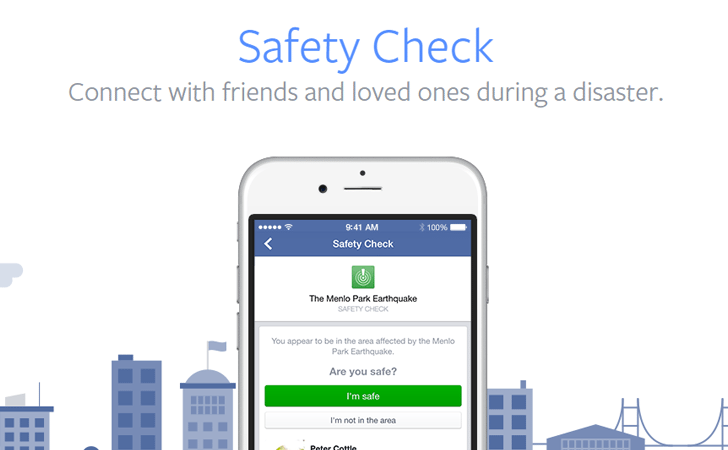
 The law of unintended consequences usually is reserved for regulation gone amok. Government officials implement a regulation they believe will negate situation A and the result is that condition B, an equally unpleasant problem, arises.
The law of unintended consequences usually is reserved for regulation gone amok. Government officials implement a regulation they believe will negate situation A and the result is that condition B, an equally unpleasant problem, arises.
That, and a number of other dicta, explains the criticism Facebook received over the weekend when it launched Safety Check in response to the terrible incidents that occurred Friday evening in Paris, which claimed the lives of more than 120 people. There are myriad PR lessons attached to this situation. Fortunately Facebook seems to be a good student.
When Facebook activates Safety Check in response to a disaster, users located in the disaster area can signal to friends and family via their Facebook accounts that they are safe, unsafe or not in the area. The company introduced the feature in Oct. 2014 and has activated it four times since, always in response to natural disasters. This weekend’s activation, the sixth time it’s been used, was the first instance it was deployed in response to a man-made situation.
Facebook says more than 360 million users received notifications from friends after Friday evening’s attacks.
All good, so far, it seems. A company serving the public in a time of need. The unintended issue that cropped up, though, is criticism as to why Facebook failed to activate Safety Check in response to other disasters, namely one that occurred in Lebanon, just one day before the Paris attacks.
Last Thursday ISIS suicide bombers killed more than 40 people in the capital city of Beirut. Yet there was little outcry in the West. While several American cities lit buildings in the three colors of the French flag over the weekend, there was little outpouring of solidarity with the people of Beirut. Is life in Beirut expected to be less safe than in Paris and thus unworthy of press coverage and Facebook’s Safety Check?
Why did President Obama quickly make a statement about Paris and not Beirut? [A National Security Council statement was released the day of the Beirut killings. It began: “The United States condemns in the strongest terms today's horrific terrorist attacks in Beirut, Lebanon that killed dozens and wounded hundreds more.”] Why did Facebook allow users to easily cover their profile pictures with an image of the French flag and not offer a similar graphic of Lebanon’s flag?
For a variety of reasons, the Beirut story also lacked the media coverage of Paris. World reaction responded in kind.
The disparity between Beirut and Paris led one commentator, Sousan Hammad, to conclude that Facebook’s Safety Check “is not for Arabs.”
Enter Facebook. Trying to do good and seeing that its network was ablaze with people contacting friends and relatives in Paris, the company activated Safety Check. Later it found itself in the unenviable position of having to explain itself.
Fortunately Facebook took the criticism well. The first lesson Facebook clearly absorbed is that social media is a conversation and listening is essential. For example, it could have ignored the criticism (a bad move), or rejected it as a spurious argument (probably also a bad move) or perhaps even tried to justify why it reacted to Paris and not to Beirut (no, no, no, stay away from that one).
Instead a post from Facebook's Mark Zuckerberg on his personal Facebook page and a longer one from Facebook VP of Growth Alex Schultz came quickly and took a conciliatory tone toward the criticism, noting it was the first time Safety Check was activated for a non-natural disaster. They both intimated Safety Check likely will be deployed more liberally going forward. Schultz wrote it’s “a work in progress” and that “we want this tool to be available whenever and wherever it can help.” Zuckerberg augmented this point of view, writing, “We just changed this [policy of using Safety Check for natural disasters] and now plan to activate Safety Check for more human disasters going forward as well.” Schultz also wrote, “This activation will change our policy around Safety Check and when we activate it for other serious and tragic incidents in the future.”
We’re hoping, of course, that global conditions warrant less and less use of Safety Check. Realistically, though, there will be a next time. We’re guessing Facebook will be prepared. As arguably the leader in social media, Facebook is no longer a newbie whose miscues can be explained away as rookie mistakes. The company is wading into difficult political situations and so it should be willing to take criticism from all sides.
As many PR pros know, CSR is far from an easy task. It involves work, planning, execution and communication. In other words Facebook, and any leading brand, must approach doing good as carefully as they would any other business decision. In the digital era, the world demands it.
